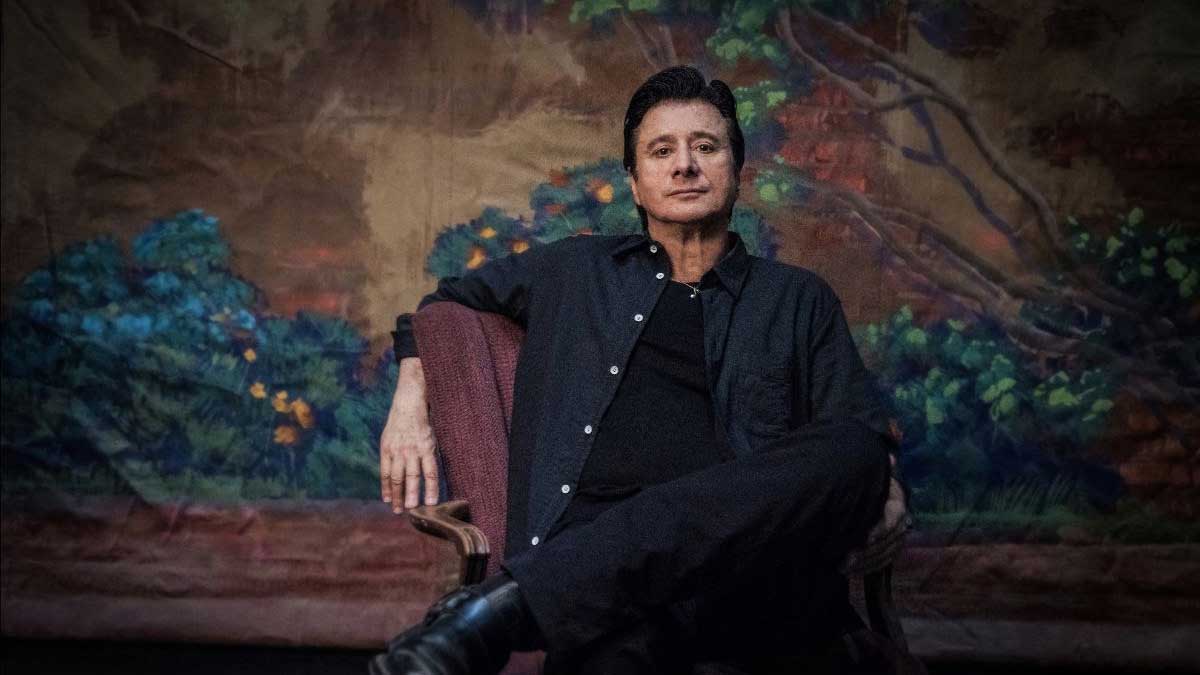To celebrate the 200th issue of Classic Rock, we interviewed 200 different musicians about the big topics in life: love, family, legacy, religion, money, the works. And we asked former Journey frontman Steve Perry about the music and people who'd inspired his path through life.

You were a white kid in California who grew up listening to soul while those you around you were into rock’n’roll.
Yeah. I was raised in a farm community. When my grandfather trained me to take over his farm, I resisted heavily. My dad was a singer and I watched him from an early age. At four I recall looking up at him on stage and thinking: “I can do that.”
Who were your earliest inspirations?
I remember loving the Kingston Trio [folk revivalists] and Buddy Holly before getting into soul via Sam Cooke. I also loved a song [popularised by Dorothy Moore] called Misty Blue.
You first heard Sam Cooke on the car radio.
It was Chain Gang [1960] and it changed my life. My mum had an old Thunderbird with a six-by-nine-inch speaker on the dashboard. What an inspirational moment that was. And it led to my love affair with Aretha Franklin and Gladys Knight, and then came The Beatles and Robert Plant.
Was Journey guitarist Neal Schon a big influence on you, or vice versa?
I think that we influenced each other pretty severely. I had always loved his playing before I joined the band, in Santana and on the first three Journey albums.
You wrote so many songs of love and loss. Who or what was the biggest influence in your life that wasn’t a musician?
I’ve such a big answer to that question. It started when my mother and father divorced when I was seven years old. When they split up, my whole world imploded. My mother was left pretty emotionally damaged by my father. That’s when music really saved my life. It was the one place I could go where there was sanity and beauty.
Did it affect the way you wrote lyrics?
I think so. I’ve always been a hopeless romantic. I always wanted love to return. When I heard that song Misty Blue it revived all of those feelings, stirring up the longings of romance and the hopeful fantasy of it all.
Your vocal style became synonymous with the hard rock groups that followed Journey. You must have heard yourself in a lot of songs on the radio?
[Laughs] That is such a loaded question.
Well, we’re not asking you to name names. Unless you want to.
That’s good, because there were a few. But honestly, I’m not sure if they were emulating me. In that era there were an awful lot of tenor rock singers. I wasn’t the only high-voiced singer, quite a few of us went to that astronomically high level to be heard above the guitars. I don’t know what I was thinking. When I try to sing those songs today… oh my god. It’s the like baseball pitchers that throw at ninety-eight miles an hour. You know why they do that? Because they can.
This feature originally appeared in Classic Rock 200, published in August 2014.

